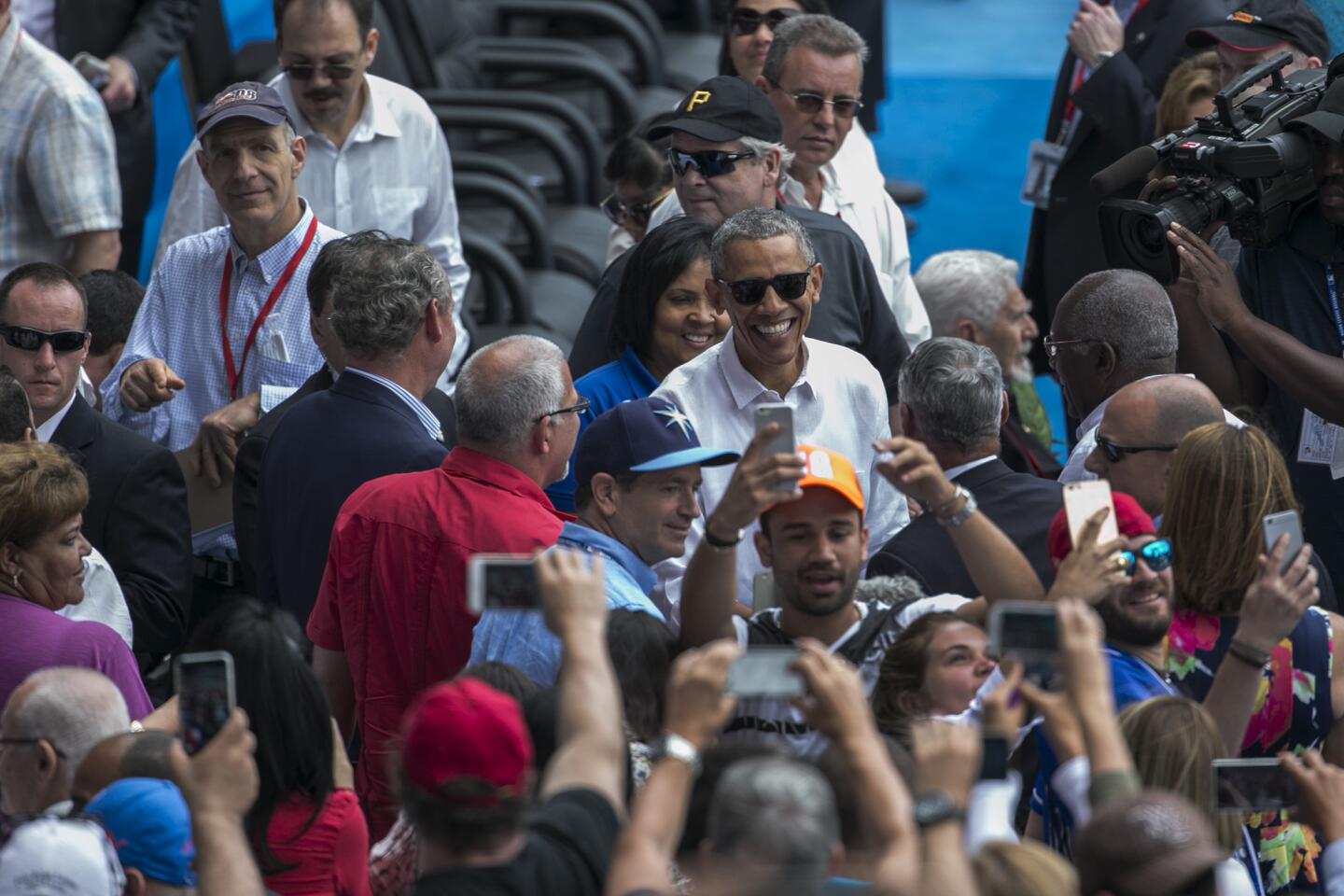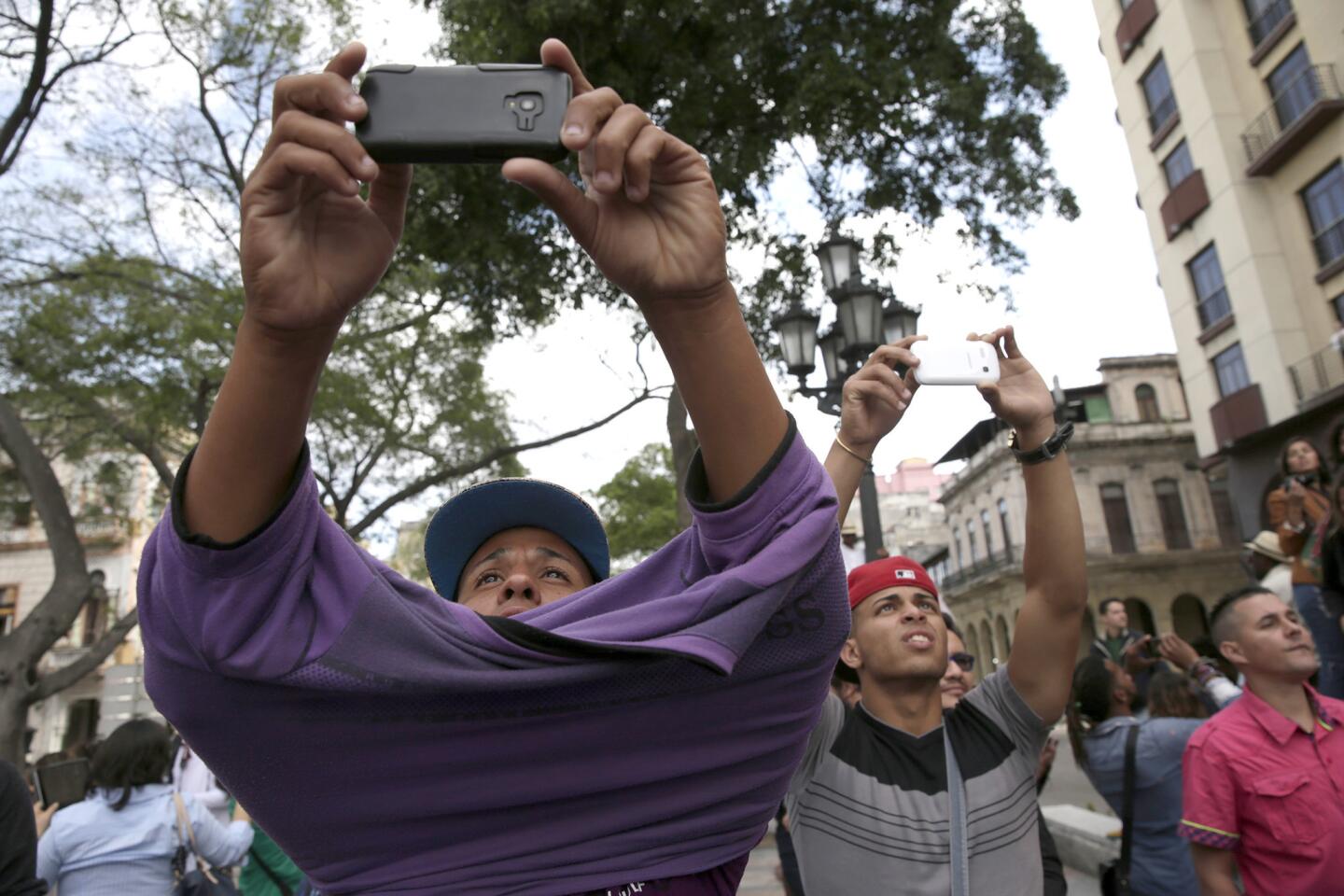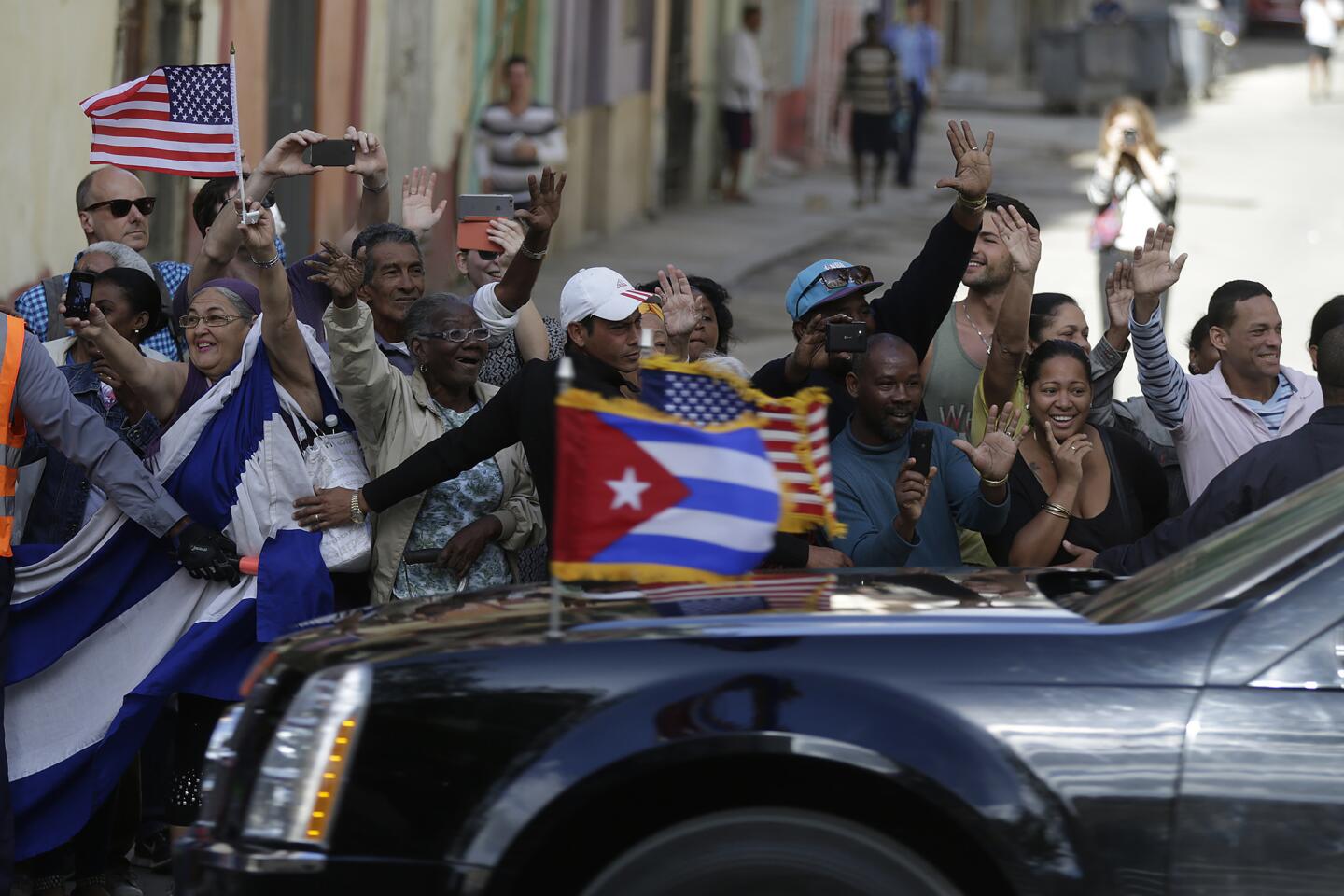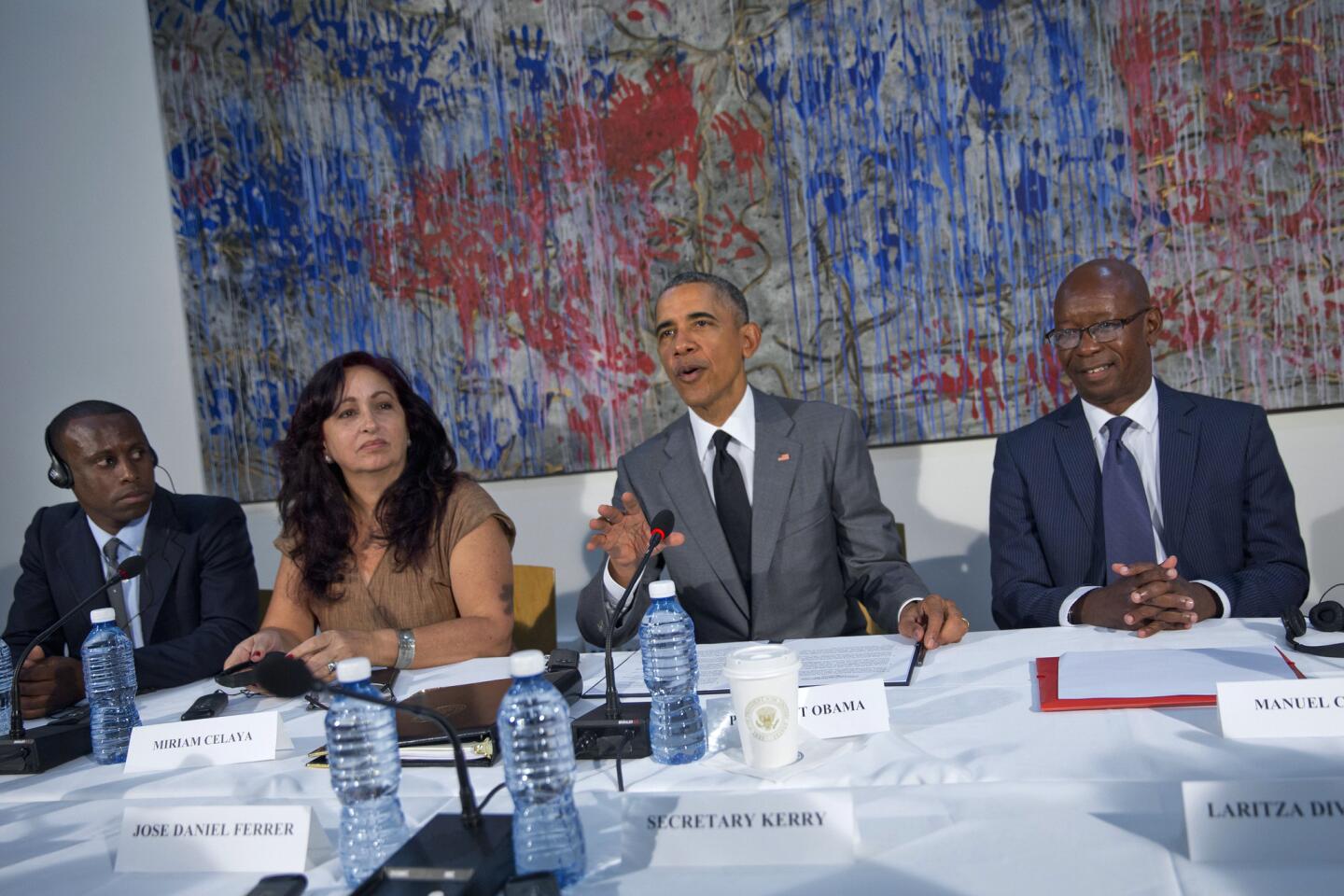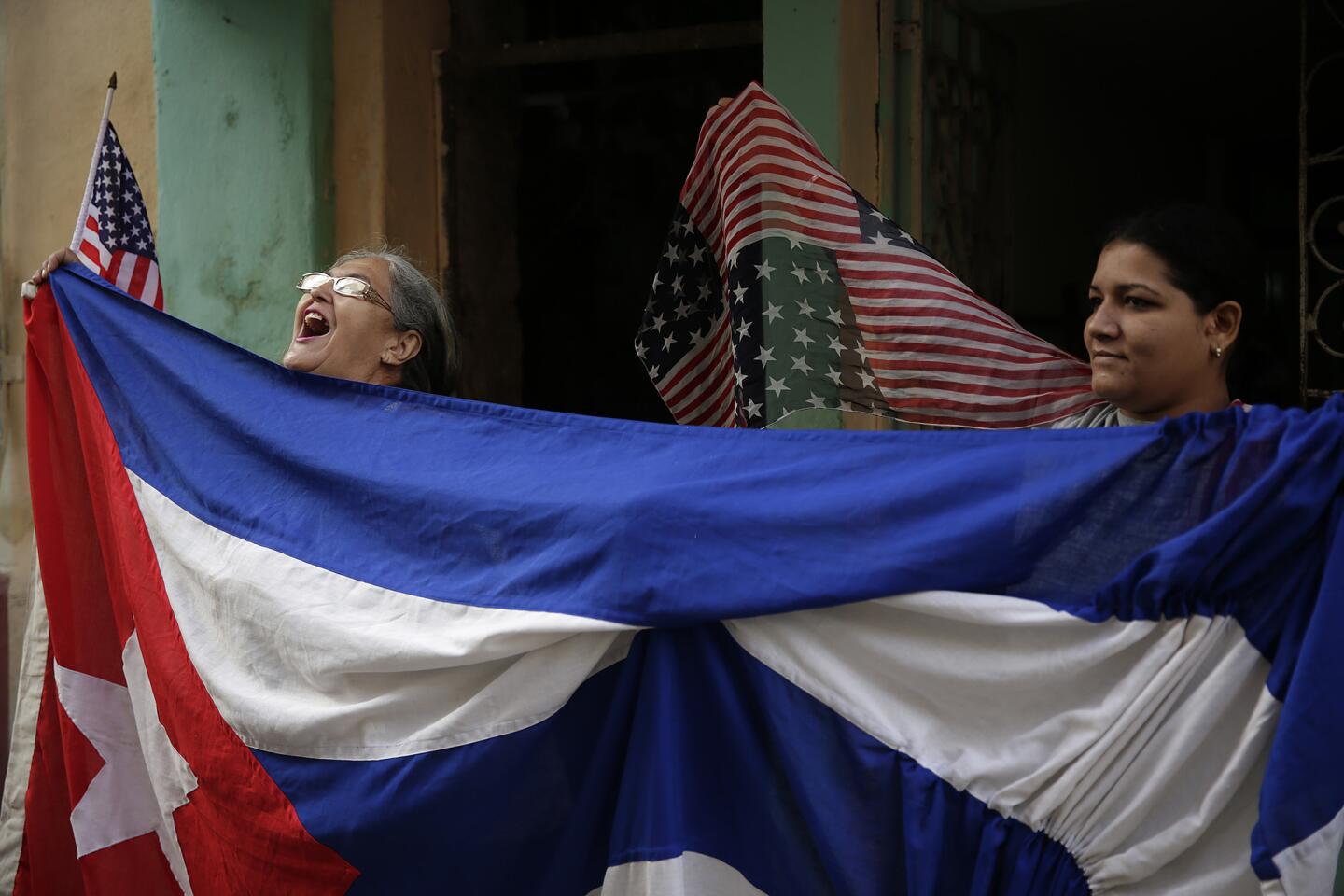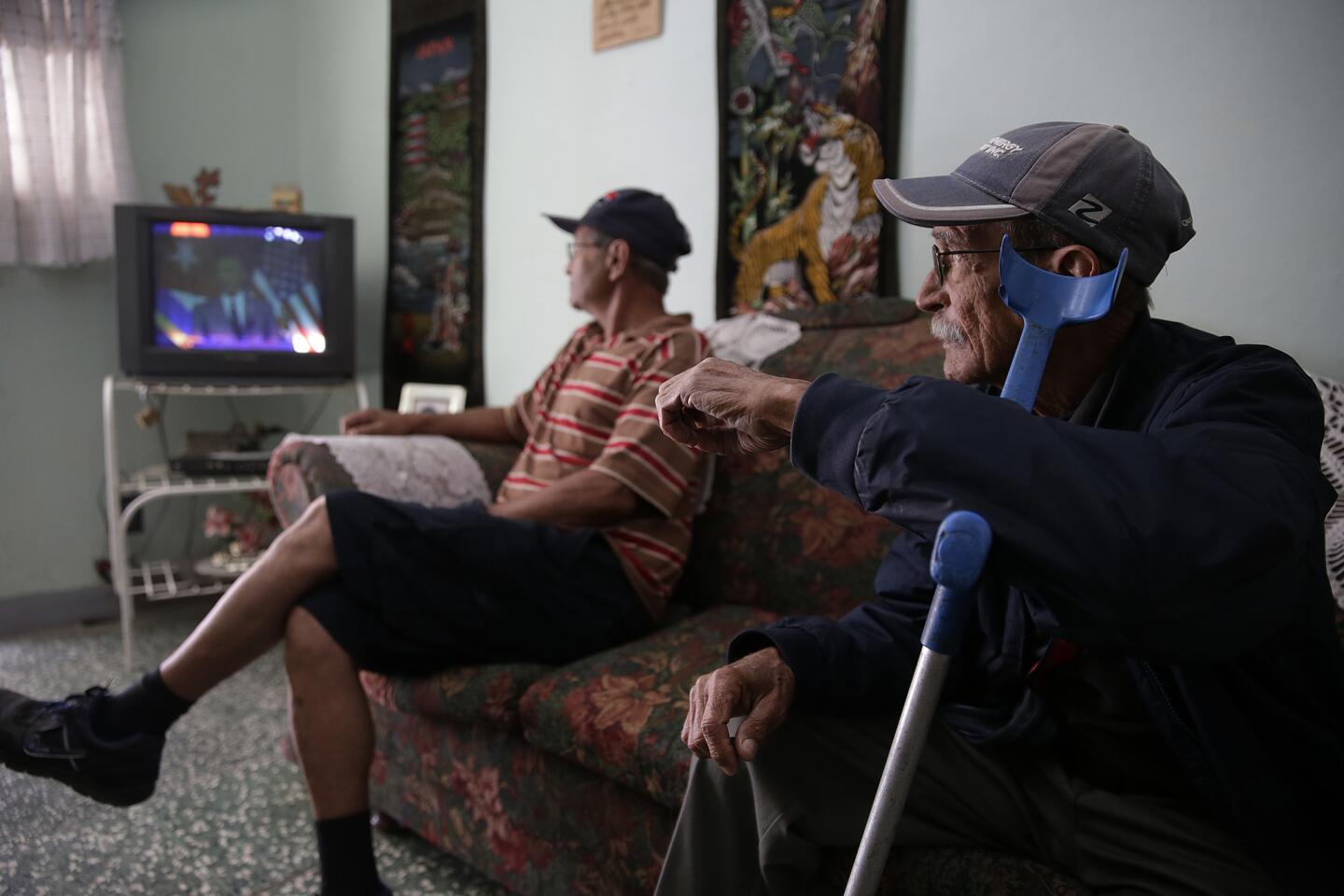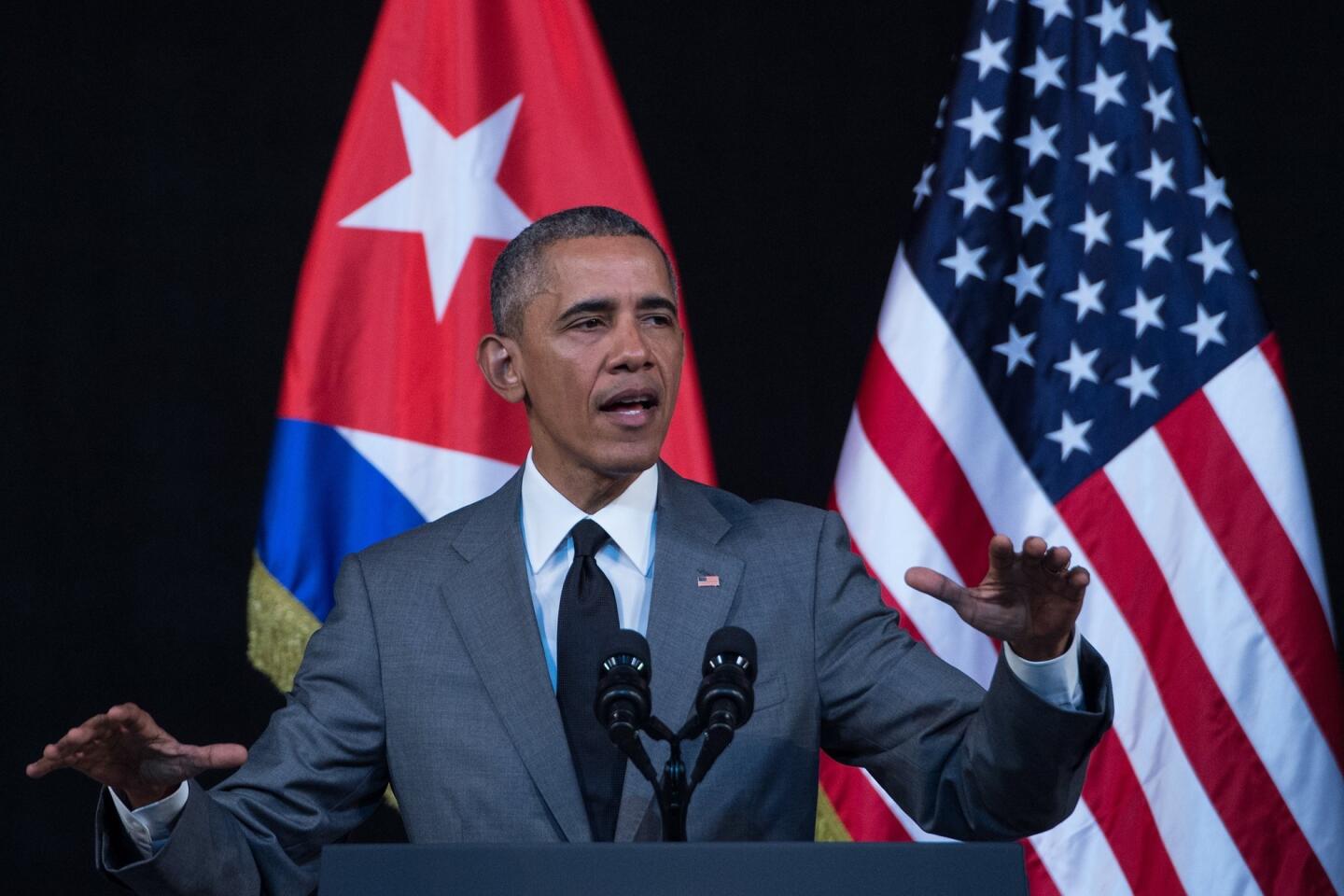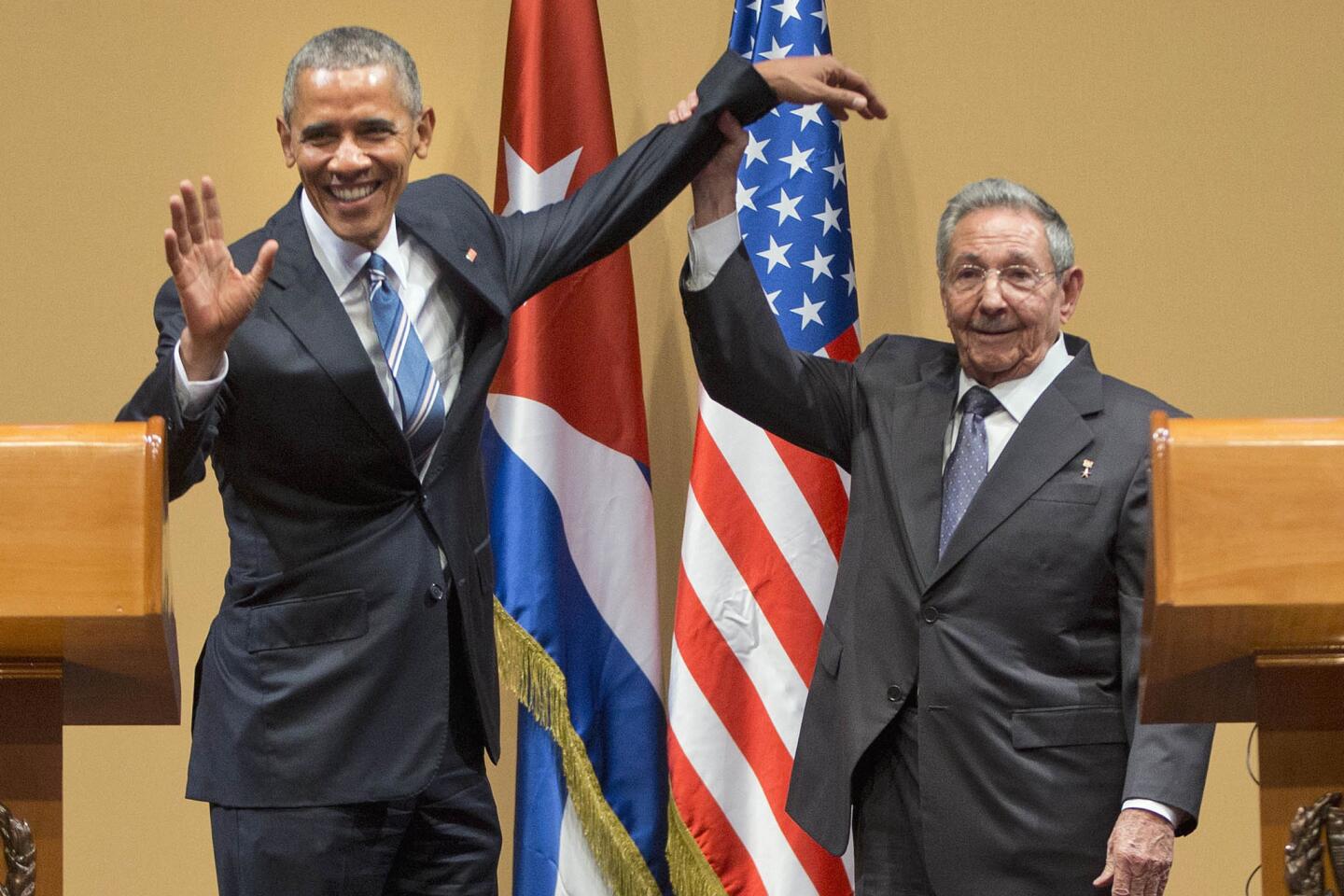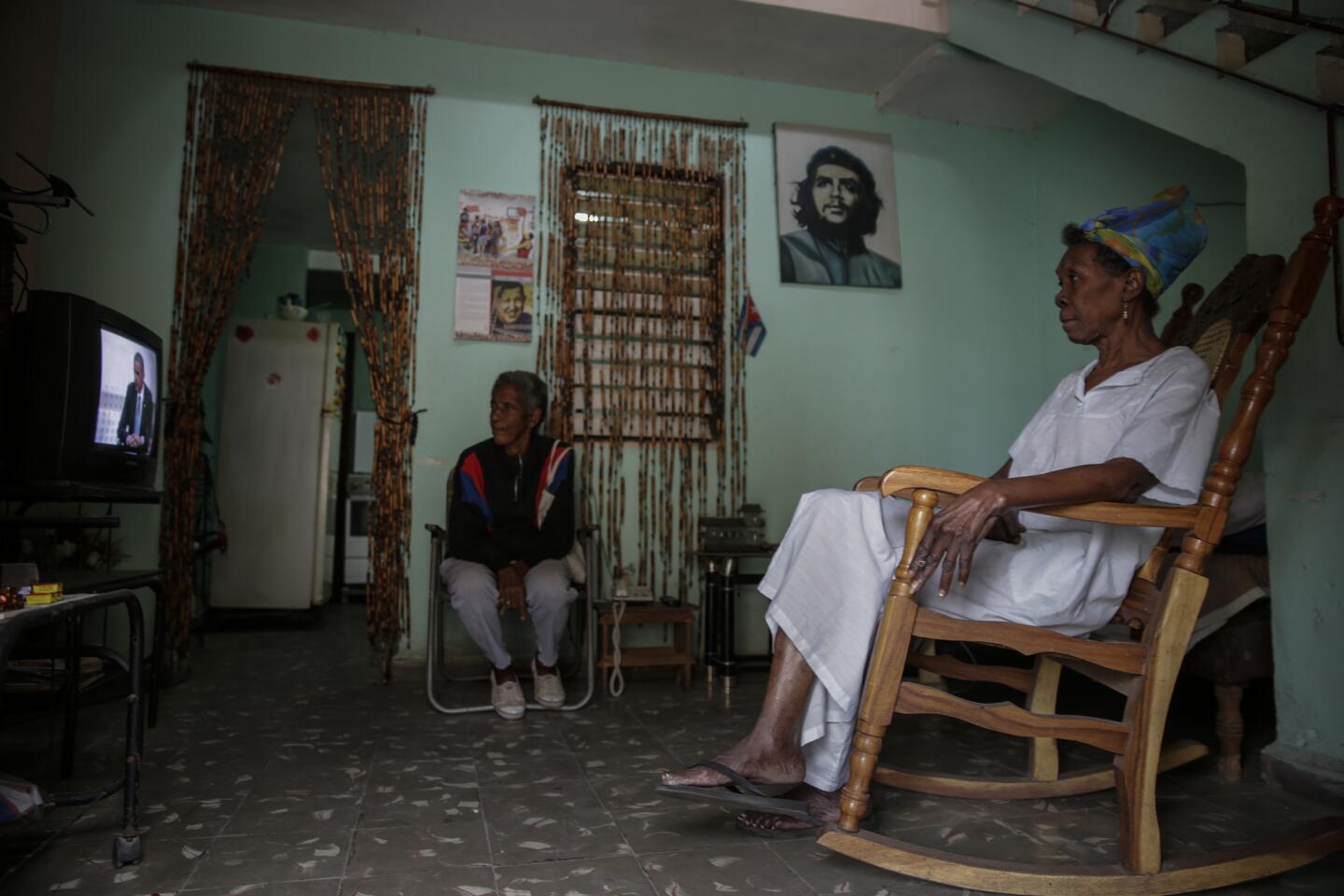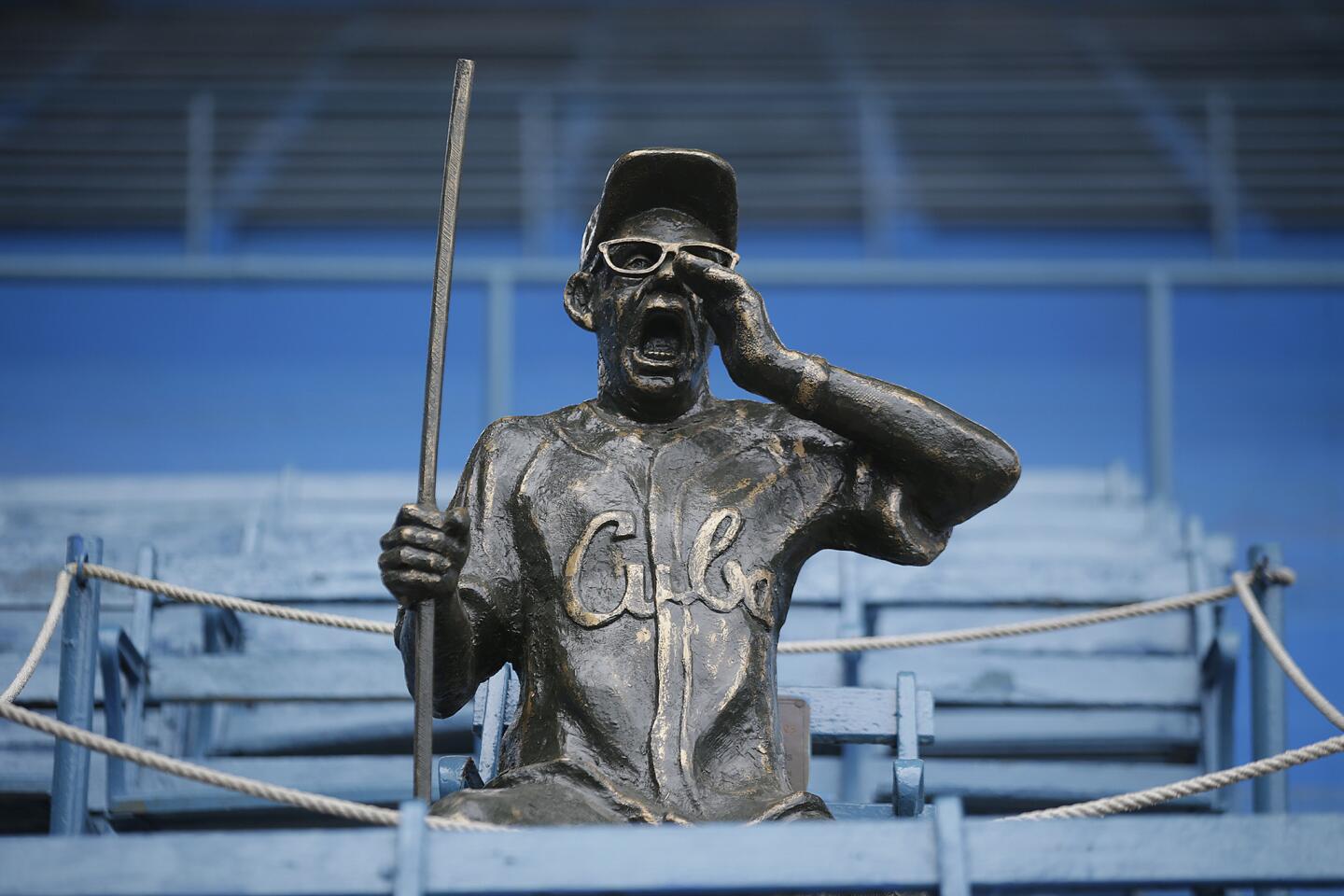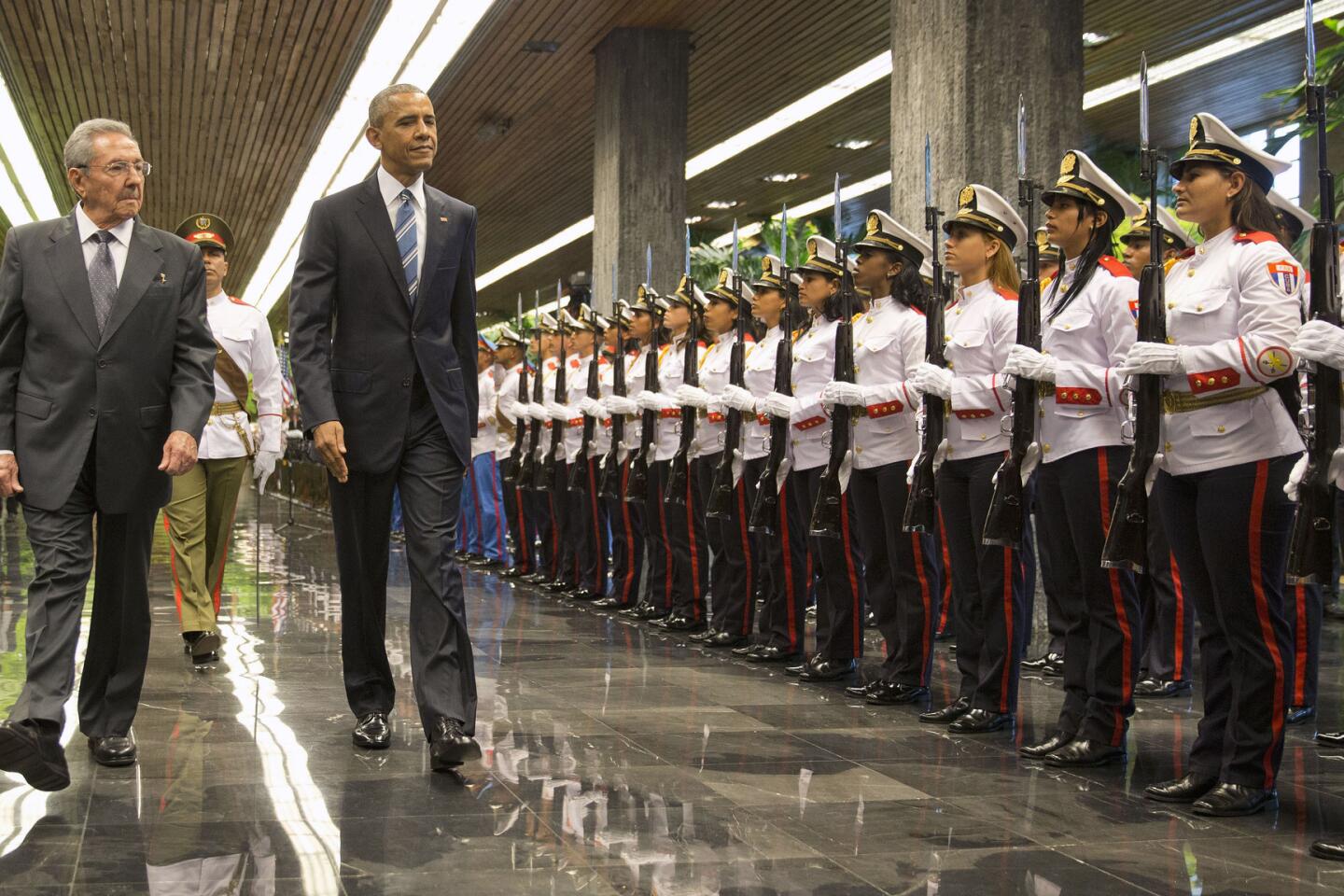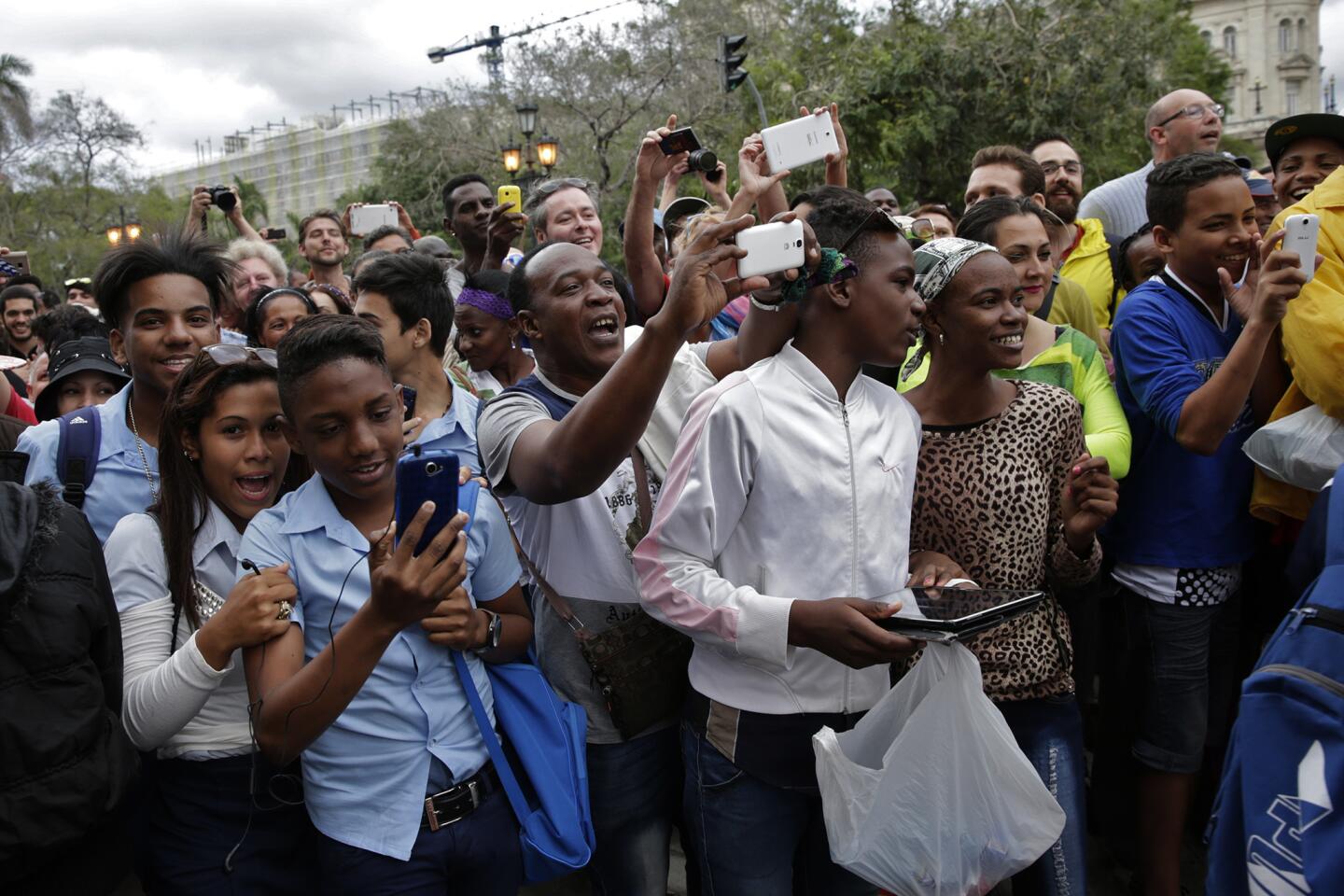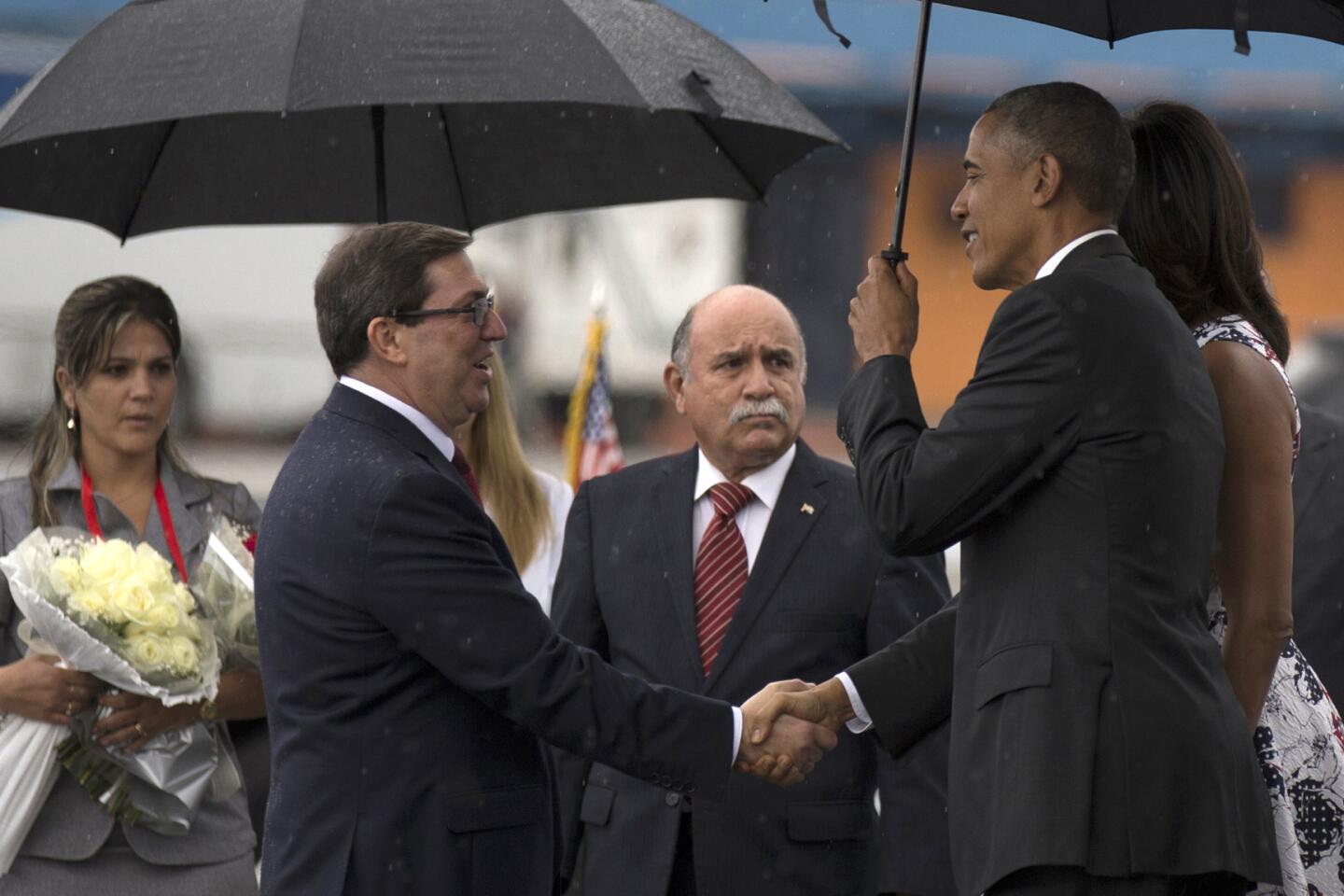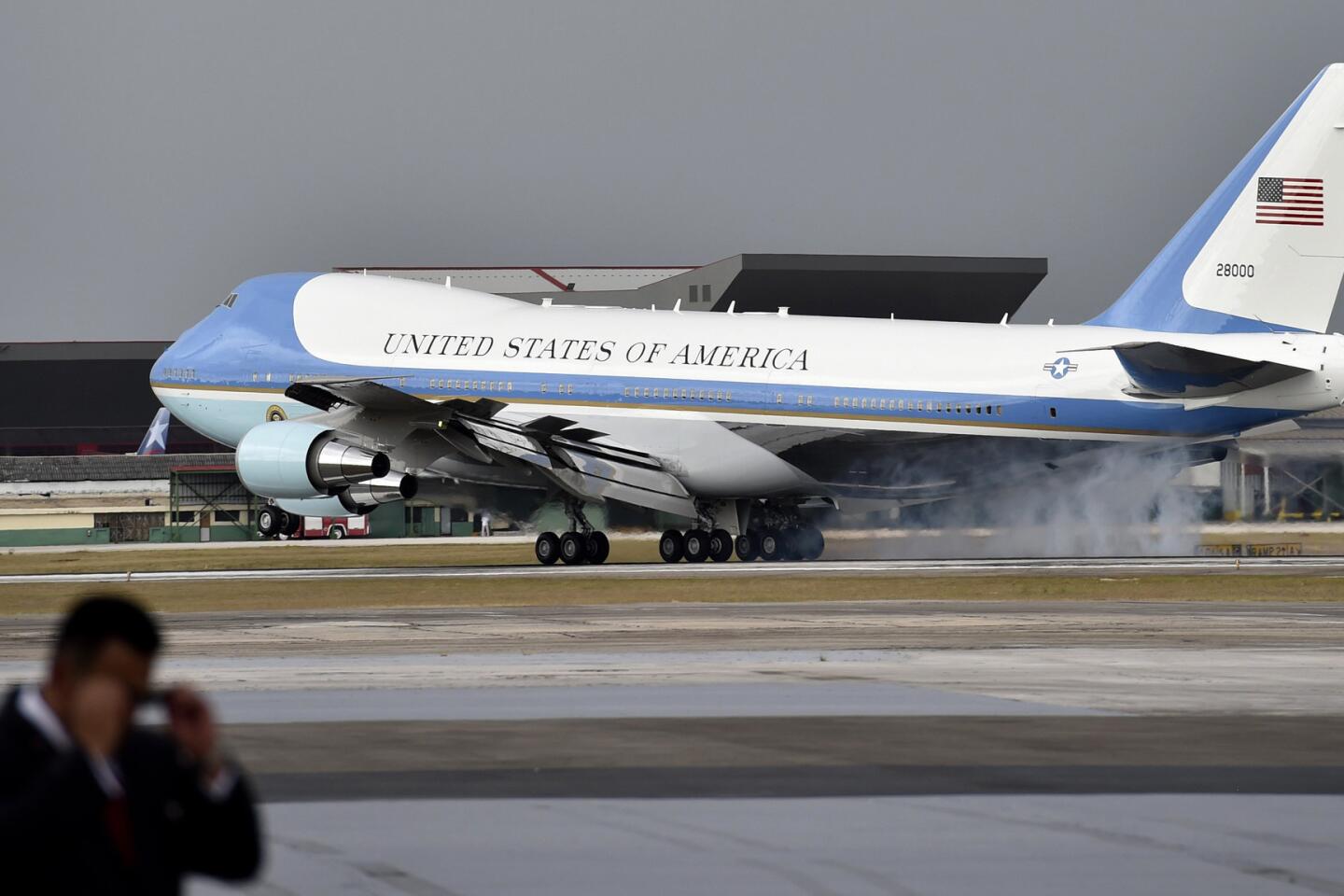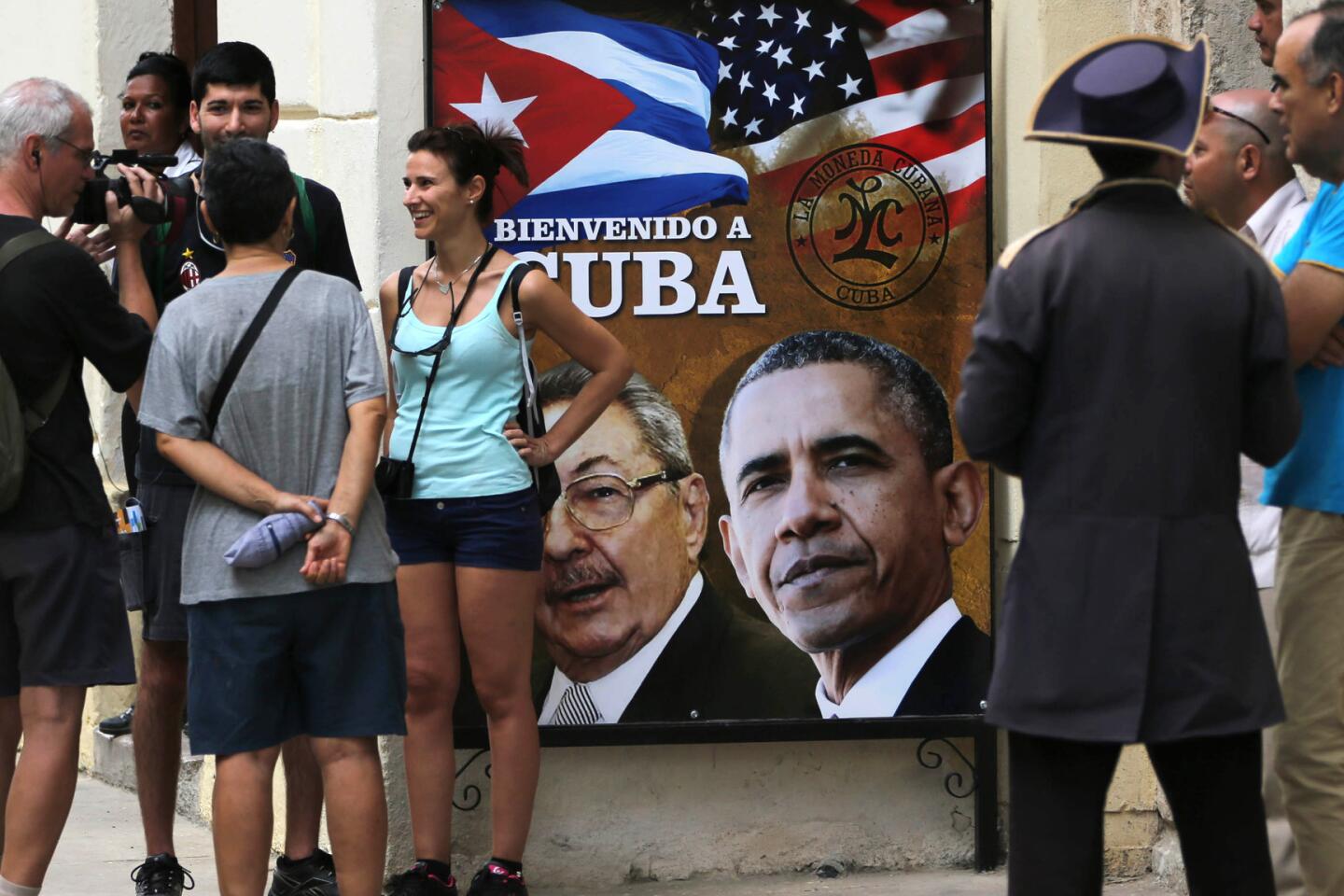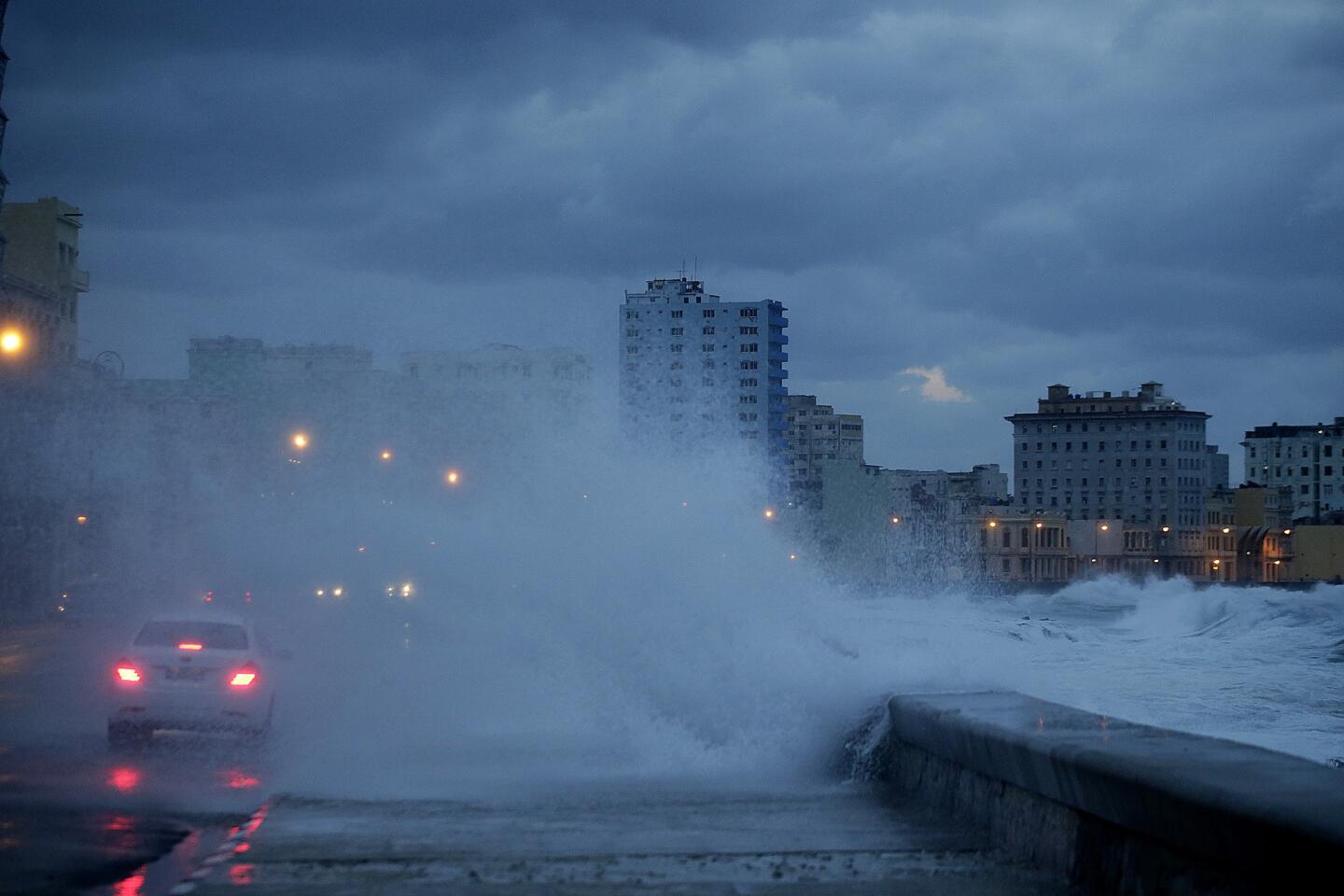What Obama’s visit means for Cuba’s national conversation about race
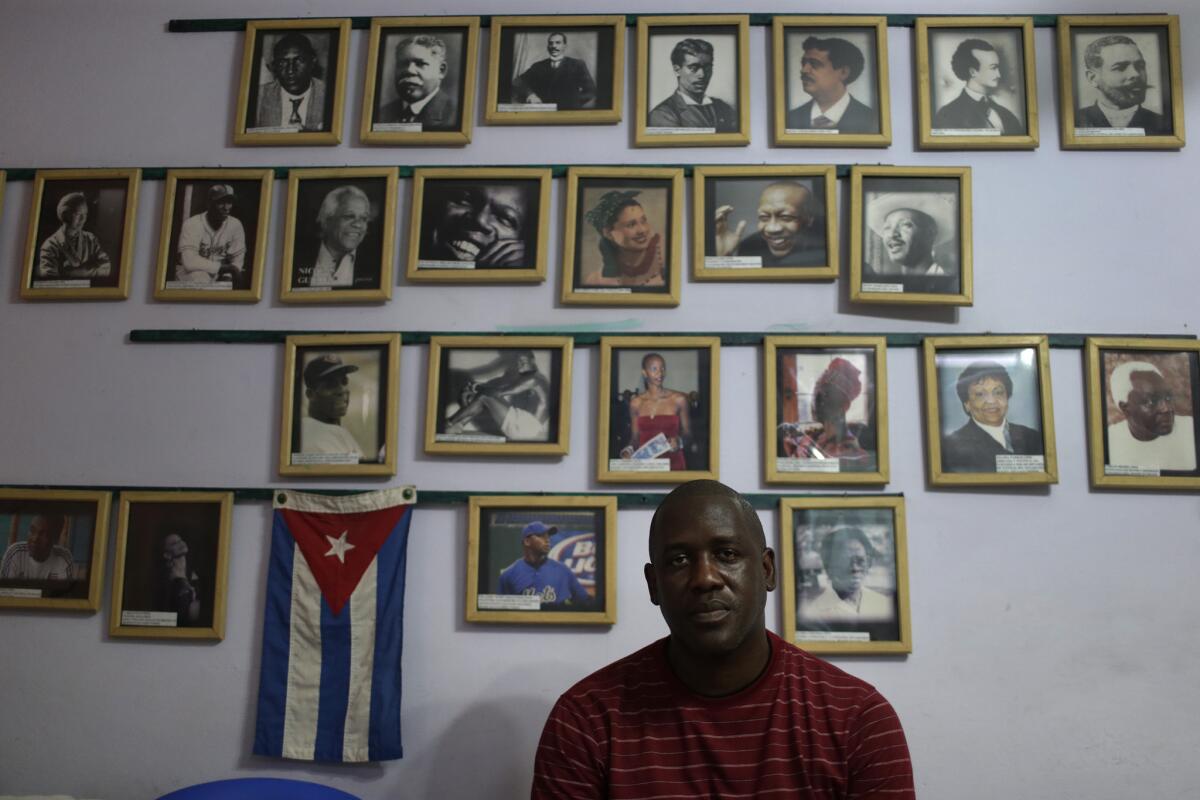
Juan Madrazo Luna displays a gallery of famous Afro-Cubans in his Havana home.
- Share via
reporting from Havana — In recent years, Afro-Cuban intellectuals have started gathering in a cramped Havana apartment to discuss a topic long considered off-limits in Cuba: race.
Fidel Castro’s communist revolution 60 years ago promised to wipe out racial divisions and level the playing field for all Cubans, regardless of color or wealth. Yet racism persists in Cuba, and many say recent economic changes here have overwhelmingly favored the light-skinned elite.
The historic visit this week of an American president who happens to be black is of special significance to Afro-Cubans, who, like many minorities around the world, view President Obama as a symbol of what is possible. It’s of particular importance for the small but growing movement of black activists on the island, who have struggled for years under government pressure, and who hope that warming U.S.-Cuba relations will push Cubans toward greater race consciousness.
“Maybe without an enemy, everyone here can begin to look more closely at things inside our own country,” said activist Manuel Cuesta Morua, who said he is one of several Cuban dissidents, most of whom are not black, invited to meet with Obama on Tuesday. “We hope it will help people see the racism here with more clarity, and see that there is diversity, and diverse ways of thinking.”
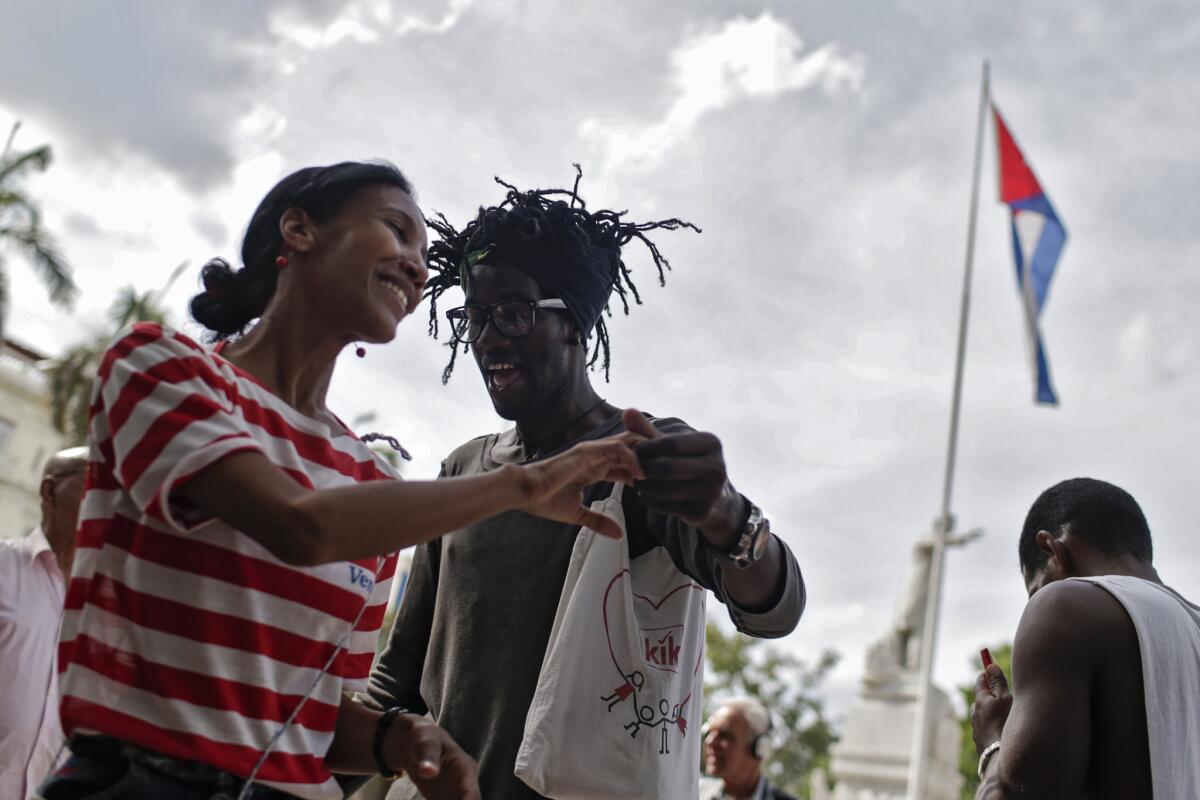
Dominik Dominco Almonaci dances with Mariela Ortiz in Havana’s Central Park.
African influences dating back to the days of slavery permeate nearly all aspects of Cuban culture, from the fried plantains served at dinner to the rhythm of the salsa music played on the street. Yet many black Cubans complain of persistent discrimination.
Afro-Cubans are poorly represented in the top echelons of the military and Cuba’s Communist Party, and they are often passed over for jobs in the nation’s growing tourism sector. Unlike Christians, practitioners of Yoruba, Santeria and other Afro-Cuban religions are barred from establishing their own houses of worship.
Even though a majority of Cubans are mixed race to some degree, jokes about those who are darkest are common. A common phrase – “every sheep with its kind” – is used to discourage interracial coupling.
Dominik Dominco Almonaci, 28, who on a recent afternoon was dancing to a live salsa band in a plaza in Old Havana, said he has been accosted by police for walking with a lighter-skinned woman in his hometown of Santiago. The reason? “My dreadlocks,” he said.
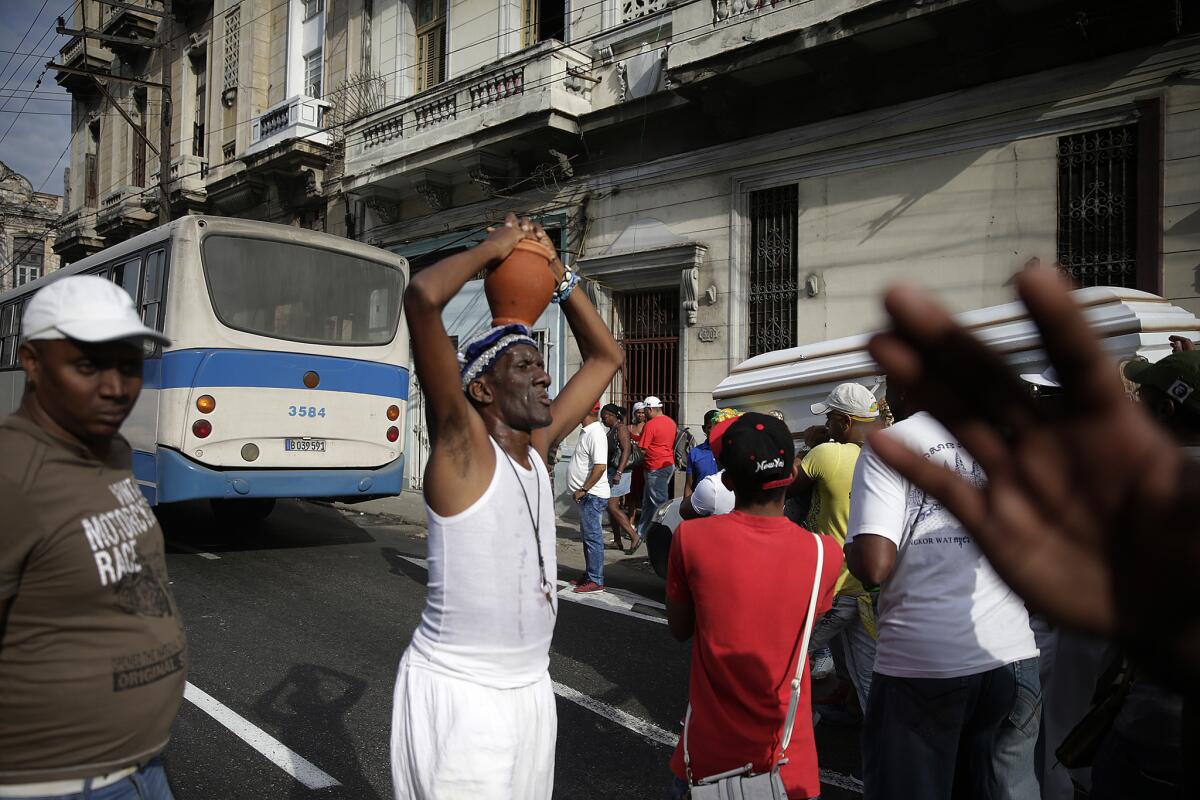
A hand pushes a camera away as a Santeria funeral procession marches along a street in Havana. People who practice Santeria in Cuba usually do not allow their rituals to be photographed.
Almonaci, who said he doesn’t like U.S. capitalism, said Afro-Cubans can learn from Obama and U.S. civil rights activists to press for more equality.
“The kids of color in the U.S. are more united,” said Almonaci, referring to African American activists who have banded together to protest police violence.
Experts and activists say a series of recent economic changes in Cuba has created a widening income inequality gap, with Afro-Cubans largely on the losing end.
The Cuban government now allows some people to open businesses in their homes and rent out cars as taxis. But, said Ted Henken, a professor of black and Latino studies at Baruch College, “the people who have been most successful at self-employment are the people who have well-appointed homes in central locations or a car.” That doesn’t tend to be Afro-Cubans, many of whom live on the periphery of cities such as Havana.
“Racial inequality has been further exacerbated by the large number of remittances that flow to Cubans from relatives in the U.S.,” he said. Early waves of migration to American cities such as Miami were dominated by wealthier – and whiter – Cubans who were fleeing the Castro government’s plans to redistribute wealth.
Henken said he believes the Cuban government should do more to protect vulnerable groups, such as Afro-Cubans or the elderly, but noted that that would first require the recognition of difference.
“The government doesn’t think that way,” Henken said. “The government has one-size-fits-all solutions.”
Juan Madrazo Luna, whose apartment has become the gathering point for many Afro-Cuban activists, said that the movement has many sympathizers but that it is difficult to get people to speak out because they fear police harassment or losing their job.
Luna, who was once a manager at a government personnel office, said he was fired several years ago after employees he supervised said “they were uncomfortable having a boss who was black.”
He didn’t learn about the civil rights movement in the U.S. until he was 28. In Cuban textbooks, he said, the U.S. is presented as a country beset with racism, but the stories of people such as Martin Luther King Jr. and Malcolm X are left out.
In recent years, Luna has started hosting small workshops in his apartment, in which he teaches younger Afro-Cubans about those figures and other luminaries of civil rights movements in Brazil and other places.
On the wall of his living room, he has hung a Cuban flag and a couple dozen framed portraits of Afro-Cuban intellectuals, sports heroes and revolutionary leaders. Many of them too were left out of history books, he said. “We are invisible in our own revolutionary history.”
Twitter: @katelinthicum
ALSO
What should President Obama do on his visit to Cuba? We have some suggestions
President Obama is coming to Cuba today. So why are so many Cubans leaving?
Cuba ordering its dissidents to skip meeting with Obama
More to Read
Sign up for Essential California
The most important California stories and recommendations in your inbox every morning.
You may occasionally receive promotional content from the Los Angeles Times.
